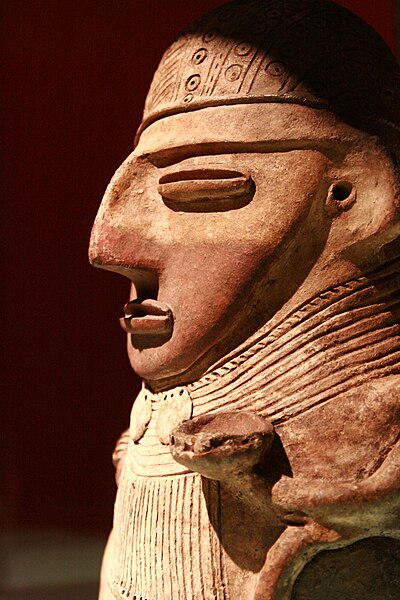Pre-Columbian cultures of Colombia
The pre-Columbian cultures of Colombia refers to the ancient cultures and civilizations that inhabited Colombia before the Spanish Conquest in the 16th century.
San Agustín Archaeological Park
Ciudad Perdida ("The Lost City")
Muisca raft. The figure refers to the ceremony of the legend of El Dorado.
The Muisca are an indigenous people and culture of the Altiplano Cundiboyacense, Colombia, that formed the Muisca Confederation before the Spanish conquest. The people spoke Muysccubun, a language of the Chibchan language family, also called Muysca and Mosca. They were encountered by conquistadors dispatched by the Spanish Empire in 1537 at the time of the conquest. Subgroupings of the Muisca were mostly identified by their allegiances to three great rulers: the hoa, centered in Hunza, ruling a territory roughly covering modern southern and northeastern Boyacá and southern Santander; the psihipqua, centered in Muyquytá and encompassing most of modern Cundinamarca, the western Llanos; and the iraca, religious ruler of Suamox and modern northeastern Boyacá and southwestern Santander.
Muisca raft (1200–1500 CE) representation of the initiation of the new zipa at the lake of Guatavita
View of the Eastern Ranges of the Colombian Andes Lake Tota is clearly visible
Petroglyphs of El Abra (~11,000 BCE)
A Muiscan ceramic figure.






